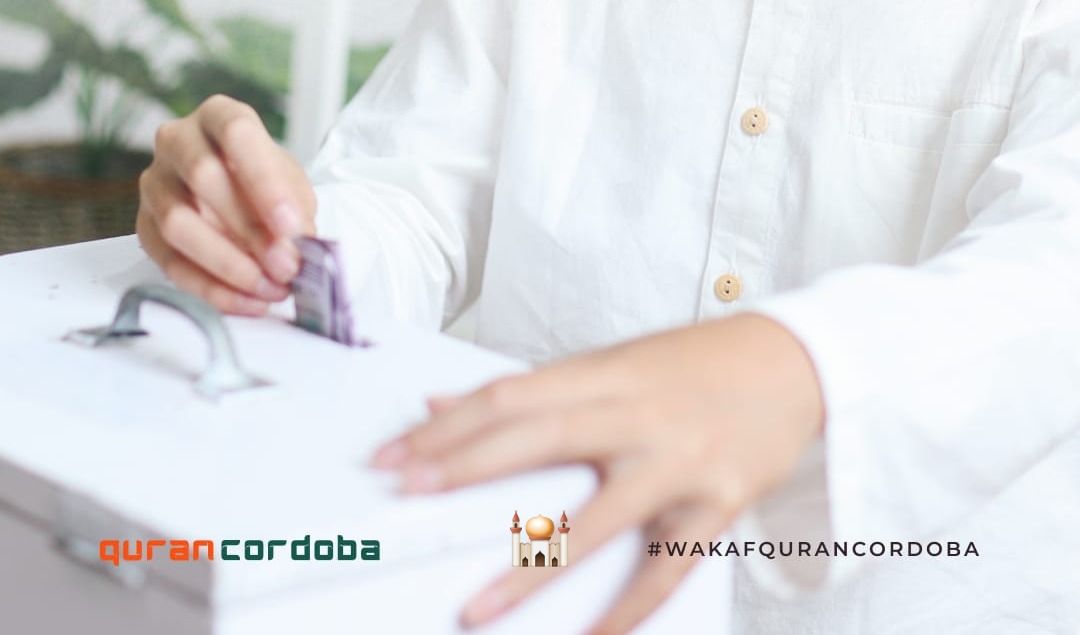Heri Mahbub
In Islam, the activity of welcoming Ramadan is called Tarhib. This article will discuss the meaning of Tarhib Ramadan, how to welcome the holy month with joy, as well as practical steps that can be taken so that our Ramadan 1445 H becomes more meaningful.

Ramadan 1445 AH is just around the corner! A month full of mercy, forgiveness, and blessings eagerly awaited by Muslims worldwide. However, welcoming Ramadan is certainly not simply about waiting for the day to pass. There are many things we can prepare to maximize our worship and prepare our hearts for this blessed month.
Linguistically, tarhib comes from Arabic, meaning "to welcome with joy." Tarhib Ramadan means welcoming the arrival of Ramadan with joy, enthusiasm, and a high spirit of worship.
The Prophet Muhammad (peace be upon him) taught his followers to prepare themselves long before Ramadan arrives, both physically, mentally and spiritually.
As the Prophet Muhammad SAW said:
The meaning: "The month of Ramadan has come to you, a blessed month. Allah has made it obligatory for you to fast during it. The gates of Paradise are opened, the gates of Hell are closed, and the devils are chained..."
(Narrated by Ahmad and An-Nasa'i)
Through Ramadan tarhib, we are reminded that Ramadan is not just an annual ritual, but a golden opportunity to improve ourselves, increase our good deeds, and seek forgiveness from Allah SWT.
READ ALSO: 30 Cool Quotes Ahead of Ramadan 2025: Improvement, Peace with the Quran
Many of us may be so busy with our daily routines that Ramadan sometimes arrives without proper preparation. As a result, we miss the opportunity to maximize our worship during the holy month. Here are some reasons why tarhib (religious prayer) is so important during Ramadan:
Preparing is a step towards victory, not preparing optimally means delaying victory.
Early preparation helps us to be more focused in carrying out fasting, prayer, and other good deeds during the month of Ramadan.
With good preparation, we will not waste precious time in the month of Ramadan, such as the special night of Lailatul Qadr.
The month of Ramadan is a special guest. Welcoming it with joy will increase the spirit of worship.
________________________________________
Also read: Ramadan Fasting and Mental Health: Maintaining Soul Balance in the Moon forgiveness
The Prophet Muhammad (peace be upon him) is the ultimate role model for Muslims in various aspects of life, including preparing for the holy month of Ramadan. These preparations are not undertaken suddenly, but begin long before Ramadan arrives, during the months of Rajab and Sha'ban.
Following are several steps in welcoming the month of Ramadan, based on various histories:
The Prophet Muhammad (peace be upon him) was known to frequently pray for Ramadan, preparing for it months in advance, hoping to live until the holy month. One famous prayer is:
Meaning: "O Allah, bless us in the months of Rajab and Sha'ban, and bring us to the month of Ramadan."
This prayer reflects the longing of Muslims for Ramadan, and is also a form of spiritual readiness to welcome the blessed month.
In the month of Sha'ban, we should increase our sunnah fasting more than in other months, Aisyah RA said:
Meaning: "The Prophet Saw never fasted for a month more than the month of Shaban. Sometimes he fasted for the entire month of Sha'ban." (HR. Bukhari Muslim).
Fasting in the month of Sha'ban is a spiritual and physical exercise so that Muslims are ready to welcome the obligatory fasting in the month of Ramadan.
The Prophet Muhammad (peace be upon him) increased his worship, such as by increasing his night prayers, reading the Quran, and remembering God. This demonstrates that preparation for Ramadan is not only physical but also spiritual. The months of Rajab and Sha'ban are the perfect time to improve worship and draw closer to God.
Rasulullah SAW often gave sermons to remind his friends about the virtues of Ramadan and how to take advantage of it. In a history, the Prophet said:
"The month of Ramadan has come to you, a month full of blessings. Allah requires you to fast in it. The gates of heaven are opened, the gates of hell are closed, and the devils are shackled..."
(HR. Ahmad, An-Nasa'i, and Al-Baihaqi)
This sermon aims to motivate Muslims to prepare themselves as well as possible before Ramadan arrives.
Besides fasting, the Prophet Muhammad (peace be upon him) was also known as a very generous person, especially during the lead-up to Ramadan. A hadith states:
"The Messenger of Allah was the most generous person, and he was even more generous in the month of Ramadan."
(HR. Bukhari and Muslim)
The Prophet's generosity before Ramadan teaches Muslims to care for others, especially those who need help.
The Prophet Muhammad (peace be upon him) not only prepared himself but also encouraged his family to use the months of Rajab and Sha'ban as a time to increase their worship. This is reflected in the Prophet's habit of always reminding his family to worship together.
Also read: Forming an Inspirational Qur'ani Family in Ramadan
The Prophet Muhammad's (peace be upon him) preparations for Ramadan several months prior to welcoming the holy month encompassed spiritual, worship, physical, and social aspects. He increased prayer, fasting, worship, charity, and reminded his followers of the importance of Ramadan.
By emulating the Prophet's method, Muslims can welcome this holy month with a clean heart, strong faith, and enthusiasm to achieve blessings. that is the tarhib for Ramadan according to the sunnah.
Wallahu'alam

